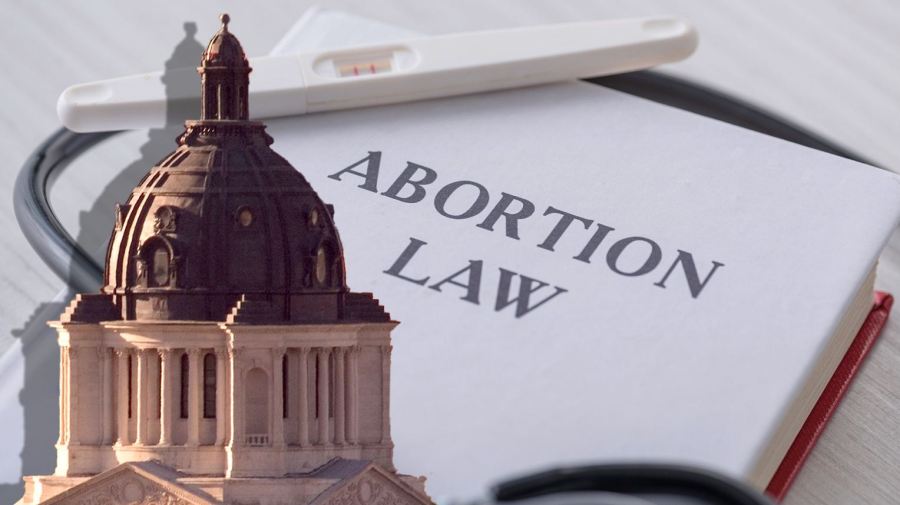SIOUX FALLS, S.D. (KELO) – South Dakota is one of seven states with abortion access on the November ballot. How does South Dakota’s proposed amendment compare to the other six states?
In 2022, the Supreme Court ruled to remove the nationwide right to abortion, which pushed the responsibility of abortion law onto individual states. Along with South Dakota, Missouri, Arizona, Colorado, Florida, Maryland, Nevada and New York will all have abortion ballot questions.
South Dakota
South Dakota Constitutional Amendment G, Right to Abortion Initiative
South Dakota’s abortion amendment provides a trimester framework for regulating abortions in the South Dakota Constitution:
- During the first trimester, the state would be prohibited from regulating a woman’s decision to have an abortion.
- During the second trimester, the state may regulate abortion, but “only in ways that are reasonably related to the physical health of the pregnant woman.
- During the third trimester, the state may regulate or prohibit abortion, except “when abortion is necessary, in the medical judgment of the woman’s physician, to preserve the life and health of the pregnant woman.”
Under current South Dakota law, abortion is banned and considered a Class 6 felony punishable by up to two years in prison and up to a $4,000 fine. The only exception to the law is if there is “appropriate and reasonable medical judgment” that an abortion would save the mother’s life. There is no exception for rape or incest.
Missouri
Missouri Right to Reproductive Freedom Initiative
Missouri’s initiative would amend the Missouri Constitution and provide the right for reproductive freedom and allow the state legislature to enact laws that regulate abortion after fetal viability.
The initiative defines “right for reproductive freedom” as “the right to make and carry out decisions about all matters relating to reproductive health care, including but not limited to prenatal care, childbirth, postpartum care, birth control, abortion care, miscarriage care, and respectful birthing conditions”
The state also defines “fetal viability” as the “significant likelihood of the fetus’s sustained survival outside the uterus without the application of extraordinary medical measures.”
Abortion in Missouri became illegal in 2022 after Roe was overturned, but there are exceptions for medical emergencies.
Arizona
Arizona Proposition 139, Right to Abortion Initiative
Arizona’s amendment establishes a “fundamental right to abortion” that the state of Arizona cannot interfere with before the point of fetal viability unless justified by a compelling state interest.
The initiative defines state interest as a “law or regulation enacted for the limited purpose of improving or maintaining the health of the individual seeking abortion care that does not infringe on that individual’s autonomous decision making.”
Abortions were legal for up to 15 weeks of pregnancy in Arizona until April 9 this year when the Arizona Supreme Court ruled in a 4-2 decision to prohibit abortions except to save the life of the mother.
Colorado
Colorado Right to Abortion and Health Insurance Coverage Initiative
Colorado’s initiative would permanently enshrine abortion rights in the state constitution and allow the use of public funds for abortions.
The initiative would prohibit the state government from denying the right to an abortion and allow abortion to be a covered service under health insurance plans. It will also repeal section 50 of Article V of the state’s constitution from 1984 that prohibited the use of public funds for abortions.
There is currently no ban on abortions in Colorado, however, there is a ban on funding abortions and this bill would allow the use of public funds for abortions.
Florida
Florida Amendment 4, Right to Abortion Initiative
Florida’s amendment would also establish a constitutional right to abortion before fetal viability, similar to Missouri’s proposed amendment.
According to the initiative’s Ballotpedia page, the following language would be added to the state constitution: “Except as provided in Article X, Section 22, no law shall prohibit, penalize, delay, or restrict abortion before viability or when necessary to protect the patient’s health, as determined by the patient’s healthcare provider.”
In May 2024, Florida’s six week abortion ban took effect. The restriction replaced the 15-week ban that had been in effect since Roe was overturned in 2022.
Maryland
Maryland Right to Reproductive Freedom Amendment
Maryland’s amendment would establish a right to reproductive freedom, defined to include “decisions to prevent, continue, or end one’s own pregnancy.”
The ballot measure is designed to prohibit the constitutional right from being denied or infringed unless there is a compelling state interest, which would need to be achieved using the least restrictive means.
Currently, abortion is legal in Maryland until viability.
Nevada
Nevada Right to Abortion Initiative
Nevada’s initiative would provide a state constitutional right to an abortion until fetal viability.
The amendment would establish that this right will not be denied, burdened, or infringed upon by a compelling state interest, which is limited to “protecting, maintaining or improving the health of an individual who is seeking abortion care that is consistent with accepted clinical standards of practice.”
Abortion is currently legal in Nevada until 24 weeks. An abortion may be performed after 24 weeks where the physician has reasonable cause to believe an abortion is necessary to preserve the life or health of the pregnant person.
New York
New York Equal Protection of Law Amendment
New York’s amendment would add language to the New York Bill of Rights that says people cannot be denied rights based on their “ethnicity, national origin, age, and disability” or “sex, including sexual orientation, gender identity, gender expression, pregnancy, pregnancy outcomes, and reproductive healthcare and autonomy,” which includes abortions.


